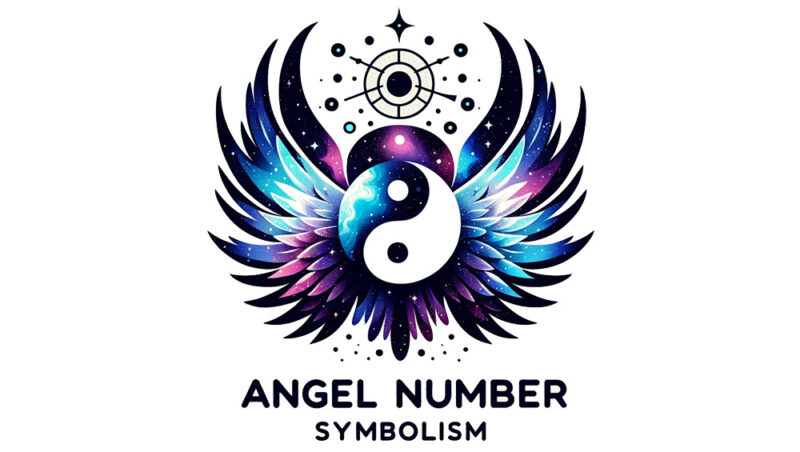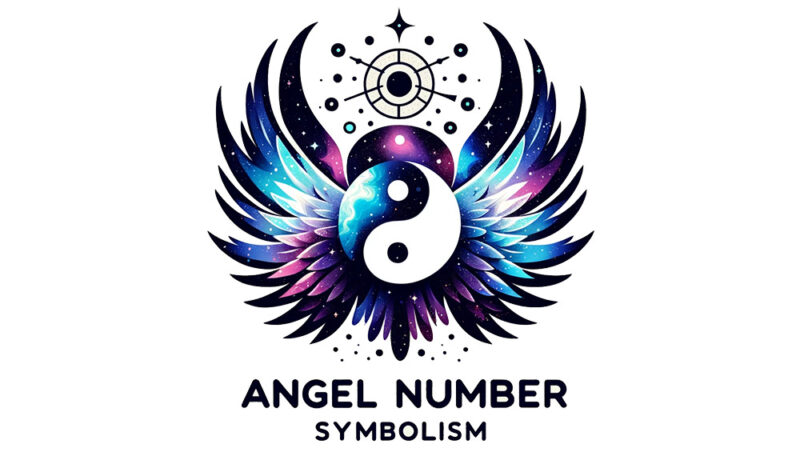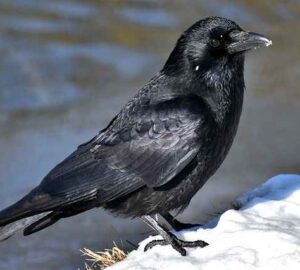Intriguingly, some cultures believe that sneezing carries a spiritual meaning beyond its physiological function. It is thought that sneezing signifies various aspects in spirituality, such as the presence of someone talking about you or the release of negative energy. In certain spiritual traditions, sneezing is even seen as a sign of good luck or a spiritual affirmation. The number of sneezes can also hold specific interpretations, with each sneeze having its own significance. It is important to note, however, that the act of sneezing is ultimately caused by irritation in the sinuses, which triggers a reflex to expel the irritant.
Key Takeaways:
- Sneezing has spiritual significance in different cultures and traditions
- It can symbolize the presence of someone talking about you or the release of negative energy
- In some spiritual traditions, sneezing is viewed as a sign of good luck or a spiritual affirmation
- The number of sneezes can have specific interpretations
- The act of sneezing is caused by irritation in the sinuses
Historical and Cultural Beliefs Surrounding Sneezing
The spiritual meaning of sneezing has played a significant role in various historical and cultural beliefs throughout the ages. Across different societies, sneezing has been attributed with deep spiritual significance, reflecting the diverse interpretations and customs associated with this involuntary act.
Ancient Roman Beliefs
In ancient Rome, during the time of the devastating bubonic plague, sneezing held particular importance. Pope Gregory I suggested the phrase “God bless you” be said after a sneeze as a protective prayer against the deadly disease. This belief showcased the spiritual connection between sneezing and the desire for divine intervention and protection.
Expelling Evil Spirits
Across various cultures, sneezing was believed to expel evil spirits. When someone sneezed, it was believed that their body was temporarily vulnerable to the entry of negative energy or spirits. To prevent this, blessings, prayers, or well-wishes were offered, aiming to repel malevolent forces and protect the sneezer from harm.
Jewish Tradition
In Jewish tradition, sneezing symbolized the soul leaving the body, much like the moment of death. It was seen as a sign of life and reminded individuals of their mortality. Sneezing in this context connected spiritual and mortal realms, reminding people of the fragility and preciousness of life.
Cross-Cultural Significance
These historical beliefs highlight the significance of sneezing in different spiritual and cultural contexts. They demonstrate how sneezing has been intertwined with mystical and religious beliefs, reflecting a shared human propensity to seek meaning and spiritual connection in everyday occurrences.
| Historical Beliefs | Cultural Beliefs | Spiritual Beliefs |
|---|---|---|
| Ancient Roman belief: Sneezing during the bubonic plague. | Expelling evil spirits through sneezing. | Jewish tradition: Sneezing as a sign of life. |
| Protection against illness | Significance in different cultural customs | Connection between sneezing and spiritual affirmation |
Sneezing in Numerology and Symbolism
In numerology, sneezing can carry symbolic meanings. Let’s explore the connection between sneezing and numerological interpretations.
In numerology, each number holds a specific energy and symbolism. Sneezing can be seen as a way for these energies to manifest and communicate with us.
Number 4: Stability and Foundations
The number 4 in numerology represents stability, foundations, and practicality. When you sneeze four times, it can be interpreted as a reaffirmation of these qualities in your life. It signifies that you are on a solid path and that the groundwork you have laid is providing a stable platform for future endeavors.
Number 8: Abundance and Success
The number 8 symbolizes abundance, success, and achievement. If you find yourself sneezing eight times, it may be seen as a positive sign indicating the arrival of good fortune. This can manifest in various aspects of your life, such as financial prosperity, career advancements, or personal achievements.
Number 9: Spiritual Growth and Completion
In numerology, the number 9 represents spiritual growth, enlightenment, and completion. Sneezing nine times may be interpreted as a sign of spiritual transformation and the culmination of a significant phase in your spiritual journey. It suggests that you are evolving and reaching a higher level of consciousness.
These interpretations highlight the synergy between sneezing and numerology, providing insight into the spiritual symbolism and deeper meanings associated with this involuntary bodily function.
| Number | Symbolism |
|---|---|
| 4 | Stability and foundations |
| 8 | Abundance and success |
| 9 | Spiritual growth and completion |
This table summarizes the numerological interpretations discussed above, showcasing the symbolic meanings associated with sneezing.
Sneezing in Religious and Spiritual Texts
Sneezing is mentioned in various religious and spiritual texts. In the Bible, for example, the act of sneezing is associated with the release of internal energy or the soul leaving the body. It is also believed to be the moment when the divine life-force is returned to its creator. In different spiritual traditions, sneezing has been attributed to the expulsion of negative energy or the channeling of spiritual messages. These references in religious and spiritual texts further validate the spiritual significance of sneezing.
| Religious Text | Spiritual Interpretation of Sneezing |
|---|---|
| The Bible | Sneezing signifies the release of internal energy or the soul leaving the body. It represents the moment when the divine life-force is returned to its creator. |
| Hindu Scriptures | Sneezing is seen as the expulsion of negative energy or the clearing of energetic blockages. It is believed to create space for spiritual growth. |
| Islamic Teachings | Sneezing is considered a blessed act and an opportunity for prayers. It is a reminder to seek divine guidance and express gratitude. |
In religious and spiritual texts, sneezing is not merely a bodily function but is viewed through a deeper lens, symbolizing the connection between the physical and the spiritual realms. These interpretations highlight the spiritual significance of sneezing in various religious traditions, further emphasizing its importance in understanding the interconnected nature of body, mind, and spirit.
The Physiology of Sneezing
Sneezing is a natural reflex that occurs when the nerve endings in our sinuses are irritated by irritants such as dust, pollen, or viruses. When these irritants stimulate the nerve endings, they send signals to the brain, triggering a sneezing reflex.
During a sneeze, the body goes through a series of coordinated actions. It starts with taking a deep breath, which helps to build up pressure in the lungs. The breath is then held momentarily, allowing the body to prepare for the forceful expulsion of air.
Once the breath is held, the muscles in the chest and diaphragm contract, increasing the pressure in the lungs. This sudden increase in pressure is what propels the air forcefully out through the nose, expelling the irritant along with it.
The sneezing reflex not only helps to remove irritants from the nasal passages but also serves to clear the sinuses. When we sneeze, the expulsion of air creates a strong flow that helps to flush out any excess mucus or debris that may be present in the sinuses.
The nerve endings responsible for triggering the sneezing reflex are located in the sinuses, which are air-filled cavities in the facial bones surrounding the nose. These nerve endings are highly sensitive and easily irritated, making the sneezing reflex a defense mechanism to protect the respiratory system from potential harm.
| Causes of Sneezing | How to Relieve Sneezing |
|---|---|
| Allergies – pollen, pet dander, dust mites Common cold or flu Irritants – smoke, strong odors Nasal infections | Avoid triggers – keep windows closed during peak pollen times Use antihistamines or nasal sprays for allergies Maintain good indoor air quality Practice good hygiene – wash hands regularly |
While the physiological process behind sneezing is rooted in the body’s need to expel irritants, it is fascinating to observe the various spiritual and cultural interpretations associated with this reflex. Understanding the dual nature of sneezing—both as a biological response and a symbolic event—adds depth to our appreciation of this common bodily function.
Sneezing Superstitions and Cultural Beliefs
Throughout history, sneezing has been surrounded by various superstitions and cultural beliefs. Many cultures consider saying “bless you” or offering well wishes after a sneeze as a polite gesture. This custom originated from the belief that a sneeze could expel the soul from the body, and blessings were offered to prevent this from happening.
Different countries have their own unique customs and responses to sneezing. For example, in Germany, it is common to say “Gesundheit,” meaning “health.” In Greek and Roman traditions, there is a practice known as “banishing the omen,” where people would make a hand gesture or say certain words to ward off any negative consequences associated with sneezing.
These sneezing superstitions and cultural beliefs serve as a reflection of the diverse interpretations of sneezing across different societies. While the act of sneezing itself is a physiological response, the cultural significance attached to it adds an interesting layer of customs and traditions.
Interesting Facts about Sneezing
Aside from its spiritual and cultural meanings, sneezing also carries some fascinating facts and trivia. Let’s explore some unusual information about sneezing:
- Sneezes can reach impressive speeds: Did you know that a sneeze can travel at speeds of up to 100 miles per hour? That’s faster than many cars on the road!
- Sneeze spray can reach impressive lengths: When you sneeze, the spray of droplets can travel up to five feet away. So, remember to cover your mouth and nose!
- No sneezing while asleep: Have you ever wondered why you don’t sneeze during your sleep? That’s because the reflex nerves responsible for sneezing are at rest during this time.
- Bright lights can trigger sneezing: For some individuals, exposure to bright lights can cause them to sneeze. This phenomenon, known as “photic sneeze reflex,” affects about 18-35% of the population.
- Plucking eyebrows may cause sneezing: If you’ve ever experienced a sneeze after plucking your eyebrows, you’re not alone. The irritated nerve endings in the face can sometimes trigger a sneeze response.
These sneezing facts and trivia add a layer of curiosity to the complex phenomenon of sneezing. Next time you feel a sneeze coming, remember these fun tidbits!
Medical and Scientific Explanations of Sneezing
While the spiritual and cultural significance of sneezing is intriguing, it is also important to consider the scientific and medical explanations for sneezing. Sneezing is a reflexive response by the body to eliminate irritants from the nasal passages. It involves the coordination of various respiratory muscles and the constriction of the airways. Sneezing can be triggered by allergies, infections, or irritants in the environment.
When an irritant enters the nasal cavity, it stimulates the nerve endings in the delicate lining, sending a message to the brain. The brain then initiates a reflex response that involves the contraction of the muscles in the diaphragm and chest, creating a forceful expulsion of air through the nose. This quick and powerful burst of air helps to expel the irritant and clear the nasal passages.
One of the key reflexes involved in sneezing is the trigeminal reflex. The trigeminal nerve, also known as the fifth cranial nerve, is responsible for transmitting sensory information from the face and nasal cavity to the brain. When the nerve endings in the nasal cavity are stimulated, they activate the trigeminal nerve, which in turn triggers the sneezing reflex.
The respiratory system plays a vital role in the process of sneezing. As the diaphragm contracts and the muscles in the chest compress, it causes a sudden increase in pressure within the lungs. This increased pressure helps propel the air out of the lungs and through the nasal passages, resulting in a forceful and audible sneeze.
Sneezing and Allergies
Allergies are a common cause of sneezing. When an individual with allergies comes into contact with an allergen, such as pollen, dust mites, or pet dander, the immune system reacts by releasing chemicals like histamine. These chemicals can irritate the nasal passages and trigger the sneezing reflex as the body attempts to expel the allergen.
In some cases, sneezing can also be a symptom of underlying medical conditions, such as nasal congestion, sinusitis, or respiratory infections. These conditions can cause inflammation and irritation in the nasal passages, leading to frequent sneezing episodes.
The Importance of Sneezing
While sneezing is often seen as an inconvenience or annoyance, it plays a crucial role in maintaining the health of the respiratory system. Sneezing helps to remove irritants, allergens, and infectious agents from the nasal passages, preventing them from entering the lungs and causing further respiratory problems.
It is important to note that if you experience chronic or excessive sneezing, it is recommended to consult a healthcare professional or allergist to determine the underlying cause and appropriate treatment.
Common Causes of Sneezing
| Allergies | Infections | Environmental Irritants |
|---|---|---|
| Pollen | Colds | Dust |
| Dust Mites | Sinus Infections | Smoke |
| Pet Dander | Flu | Chemical Fumes |
Conclusion
Sneezing, a natural reflex triggered by irritants in the sinuses, holds diverse spiritual meanings across different cultures and traditions. From beliefs in protection against illness to the expulsion of negative energy, sneezing symbolizes a variety of concepts in spirituality. While each interpretation may vary, it is clear that sneezing carries a spiritual significance beyond its physiological function. Exploring the spiritual meaning of sneezing allows us to appreciate the interconnectedness of body, mind, and spirit in different cultural contexts.
Throughout history, sneezing has been intertwined with religious and cultural beliefs, as mentioned in various religious and spiritual texts. The act of sneezing has been associated with the release of internal energy, the expulsion of negative energy, and the channeling of spiritual messages. These references in religious and spiritual texts validate the spiritual significance of sneezing and its meaningful connection to the divine.
As we delve deeper into sneezing’s spiritual meaning, we uncover numerological and symbolic interpretations, where the number of sneezes can represent specific qualities or experiences, such as stability, abundance, and spiritual transformation. Additionally, diverse superstitions and customs after a sneeze reflect the rich tapestry of cultural beliefs surrounding this phenomenon.
While sneezing’s spiritual significance is captivating, it is essential to also understand the physiological process behind it. Sneezing is a reflexive response by the body to eliminate irritants from the nasal passages, involving the coordination of respiratory muscles and the constriction of airways. By considering both the scientific and spiritual aspects of sneezing, we gain a holistic understanding of this intriguing phenomenon.
FAQ
What is the spiritual meaning of sneezing?
The spiritual meaning of sneezing varies across cultures and traditions. Some beliefs suggest that sneezing signifies that someone is talking about you or that you are releasing negative energy. In certain spiritual traditions, sneezing is seen as a sign of good luck or a spiritual affirmation. The number of sneezes can also have specific interpretations.
What are the historical and cultural beliefs surrounding sneezing?
Sneezing holds significance in various historical and cultural beliefs. For example, in ancient Rome, sneezing was believed to expel evil spirits, and blessings were given to prevent their reentry into the body. In Jewish tradition, sneezing was seen as a sign of life, similar to the moment of death. These beliefs highlight the diversity of interpretations of sneezing in different societies.
How does numerology and symbolism relate to sneezing?
In numerology, the number of sneezes can carry symbolic meanings. For example, four sneezes could symbolize stability and foundations, while eight sneezes represent abundance and success. Similarly, nine sneezes may be interpreted as a sign of spiritual transformation. Sneezing is connected to broader spiritual and symbolic frameworks in numerology.
Are there references to sneezing in religious and spiritual texts?
Yes, sneezing is mentioned in various religious and spiritual texts. In the Bible, sneezing is associated with the release of internal energy or the soul leaving the body. It is also seen as the moment when the divine life-force is returned to its creator. Different spiritual traditions attribute sneezing to the expulsion of negative energy or the channeling of spiritual messages.
What is the physiology behind sneezing?
Sneezing is triggered by irritation in the sinuses, which prompts a reflex to expel the irritant. The nerve endings in our sinuses send signals to the brain, resulting in a sneezing response. The reflex involves taking a deep breath, holding it, and forcefully expelling the air through the nose. It clears the nasal passages and helps remove irritants from the body.
What are some sneezing superstitions and cultural beliefs?
Throughout history, various superstitions and cultural beliefs have surrounded sneezing. Saying “bless you” or offering well wishes after a sneeze is considered a polite gesture in many cultures. Different countries have different customs and responses to sneezing. For example, in Germany, people say “Gesundheit,” while in Greek and Roman cultures, people have practices to “banish the omen” associated with sneezing.
Are there any interesting facts about sneezing?
Yes, sneezing holds some interesting facts and trivia. For instance, a sneeze can travel at speeds of up to 100 miles per hour, and the spray can reach up to five feet. People don’t sneeze while asleep because the reflex nerves responsible for sneezing are at rest. Bright lights and plucking eyebrows can also trigger sneezing in some individuals.
What are the medical and scientific explanations for sneezing?
Sneezing is a reflexive response by the body to eliminate irritants from the nasal passages. It involves the coordination of respiratory muscles and the constriction of airways. Sneezing can be triggered by allergies, infections, or irritants in the environment. Understanding the medical and scientific aspects of sneezing complements the spiritual interpretations associated with it.
What is the conclusion regarding the spiritual meaning of sneezing?
Sneezing holds diverse spiritual meanings across different cultures and traditions. From beliefs in protection against illness to the expulsion of negative energy, sneezing symbolizes a range of concepts in spirituality. Exploring the spiritual meaning of sneezing allows us to appreciate the interconnectedness of body, mind, and spirit in different cultural contexts.





